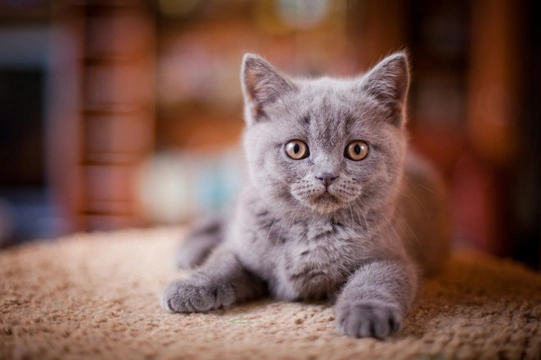
Six health issues to look out for in kittens
Kittens are tiny, cute and delicate little bundles of fur, but of course they soon grow up into active, inquisitive juveniles, and ultimately, big, confident cats! While kittens are rather hardier than they look and are apt to want to get out and exploring as soon as they can stand on their own four paws, the immune system of the kitten is not as robust and fully developed as it is in the adult cat, and this places kittens at a higher risk of succumbing to illness or problems when they are young.
Keeping your kittens with their queen for the approved period of time so that they can benefit from her immunity passed on through the milk is one way to minimise the risk of problems, as is ensuring that your kittens do not go outside, or meet with other cats until they are fully vaccinated. However, even if you are incredibly conscientious about both of these things, there are several illnesses that commonly affect young kittens, which all kitten owners should be aware of. Read on to learn more about six well known health issues that can present in kittens.
1. Intestinal worms
Worms are one of the most common problems found in young kittens, and these can be passed on easily from the queen to her litter. Intestinal worms include tapeworms, roundworms, whipworms and hookworms, which latch on to the walls of the kitten’s intestines and lead to weight loss, diarrhoea, and a general failure to thrive and grow normally.
It is important to start worming your kittens when they are eight weeks old, and do what you can to ensure that the queen is free of worms before she conceives and when she is raising her litter.
2. Coccidia
Coccidia is another intestinal parasite that infects kittens via faeces, and there is no sure fire way of preventing infection, nor means of vaccination against the condition. However, the condition is thankfully not hugely common in kittens, but should still be considered a risk.
Kittens suffering from coccidia infection will lose their appetite, be rather dehydrated, and potentially suffer from diarrhoea. Coccidia is diagnosed by means of a stool inspection by your vet, who will need you to gather a sample to make a firm diagnosis. However, medications can often treat the condition, assuming that the kittens are not too weak to respond to treatment.
3. Fleas
Fleas are very common in kittens, as it is hard to completely eradicate fleas from an adult cat such as the queen. Fleas are passed on from the queen to the litter virtually immediately after birth if they are present, and while fleas are often viewed as a minor problem, a heavy infestation can make a young kitten quite ill, as well as possibly causing a sensitivity to fleas that will affect them in later life.
Kittens that are infested with fleas will usually have visible signs of fleas on them, and will of course be rather itchy, and may even lose their fur in patches. A great many different types of flea treatment products are available to buy, but not all of these are suitable for kittens, and so you should take your vet’s advice when selecting the appropriate product.
4. Ear mites
Ear mites can be passed onto kittens from the queen in much the same way that fleas can, and show up as tiny white specks in and around the ear, which can also lead to a flaky or crumbly white crusting appearing in and around the ears. Kittens that are harbouring ear mites will scratch their ears and shake their heads a lot, and bothering the ear too much can lead to burst blood vessels within the ear, which can be very painful.
Ear drops from your vet will usually clear up an ear mite infestation.
5. Respiratory infections
Respiratory infections that affect the upper part of the respiratory tract are a common problem in kittens, and sadly, may prove fatal, particularly in very young kittens. Infections of this type may be either bacterial or viral, and include conditions such as feline herpes virus, and calicivirus.
Sneezing in kittens should be considered a potential symptom, and the condition may also include runny eyes and nose, and possibly a thick, snotty discharge. Laboured breathing is also common, and your kitten may lose their appetite too.
Respiratory infections in kittens should be treated as an emergency, and affected kittens will need to see the vet as soon as possible. Treatment is sometimes effective, but in very young kittens, a serious respiratory infection can be life threatening.
6. Panleukopenia
Panleukopenia is also known as feline distemper, and while it is not overly common within well cared for kittens, it is a serious condition that can be fatal. It is a viral infection that depletes the immune system, making it very hard to treat. Kittens with Panleukopenia are usually obviously very ill, and will require an emergency vet visit and an inpatient stay at the clinic in order to give them the best chance of survival.



